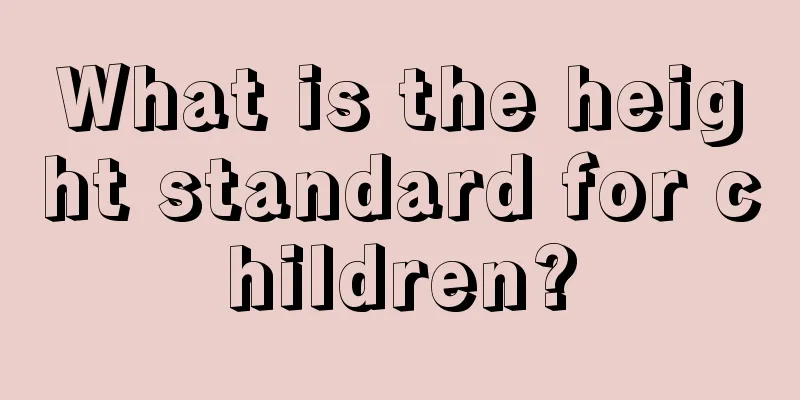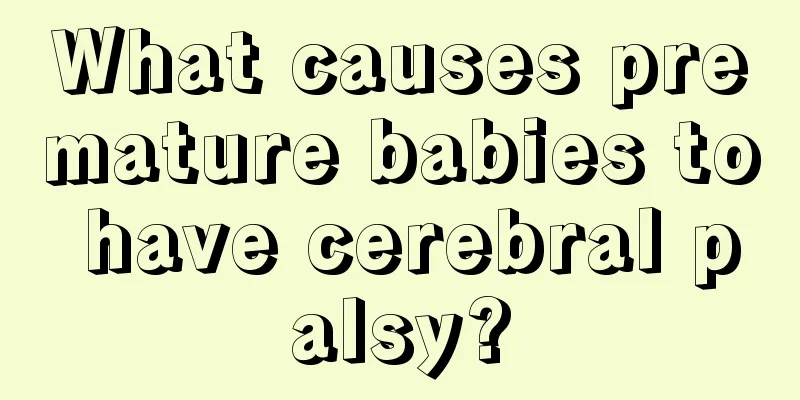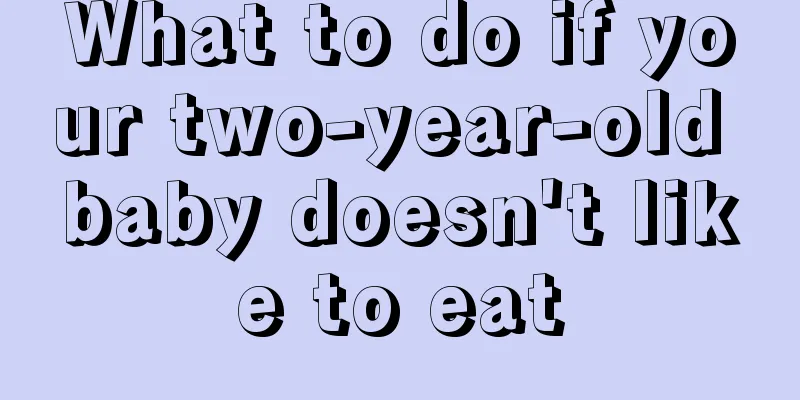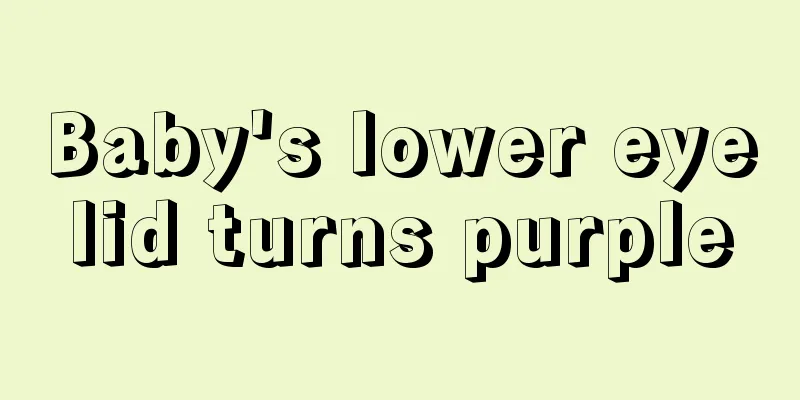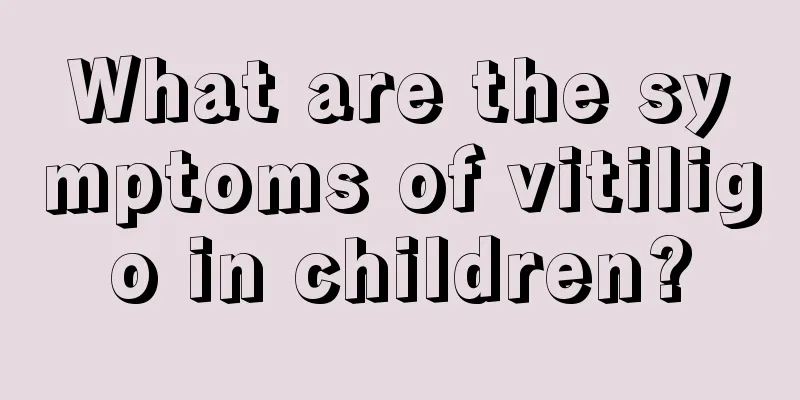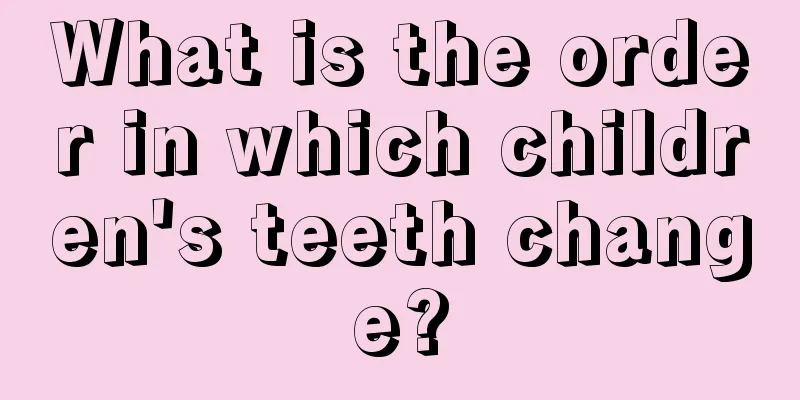What are the symptoms of neonatal asthma?
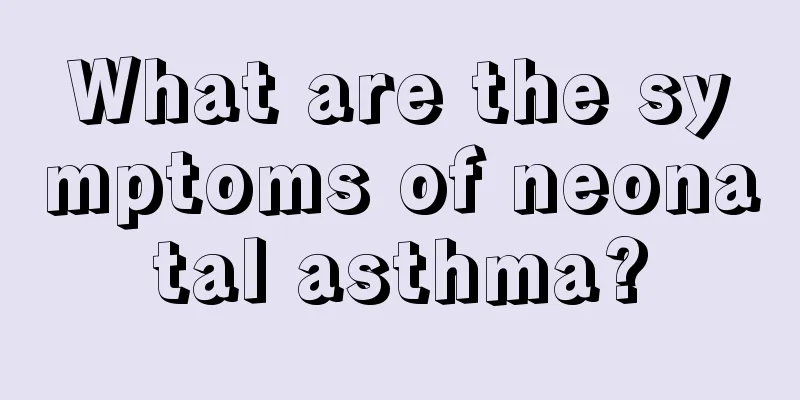
|
Nowadays, many newborns suffer from asthma, which has a great impact on their physical health. There are many factors that cause neonatal asthma. Genetic factors or certain substances in the air may cause neonatal asthma attacks. If a newborn baby suffers from asthma, parents must pay attention to it and take the baby for treatment in time. So, what are the symptoms of neonatal asthma? Asthma is a common disease among infants and young children, and there are many causes of asthma in babies, including the baby's internal genetic allergic constitution and external environmental factors. Baby asthma is related to respiratory tract infection, weather changes, excessive exercise, fatigue, food and drug allergies, etc. In addition, it is also related to the fur of small animals, indoor dust mites, mold, outdoor flowers and pollen, etc. Among them, respiratory tract infection is the most common factor causing baby asthma. During the acute attack of baby asthma, the main symptoms include coughing, sputum or sputum sound, wheezing, dyspnea, chest tightness, etc. The most typical clinical manifestation is expiratory dyspnea accompanied by wheezing. When asthma attacks severely, it will manifest as irritability, flaring of the nostrils, cold sweats all over the body, and even intermittent speech due to severe wheezing. During the intervals between attacks, a few babies may feel chest tightness and discomfort, but wheezing is no longer heard when auscultating the lungs. Most other babies have no obvious symptoms and signs. Wheezing is a common symptom of lower respiratory tract diseases in infants and young children. The pathological basis of wheezing is due to inflammation of the bronchioles, mucosal congestion, edema, increased mucus secretion, and mucus embolism causing airway narrowing. Since infants and young children have difficulty expectorating, coughing and wheezing often exist at the same time when they suffer from lower respiratory tract diseases. Infant asthma refers to asthma in children under 3 years old, which accounts for a large proportion of childhood asthma. Compared with general childhood asthma, the clinical manifestations of infant asthma are often atypical and are easily misdiagnosed or missed, which affects targeted treatment and leads to repeated asthma attacks. The disease should be diagnosed and treated as early as possible according to its characteristics, otherwise the chance of cure will become smaller and smaller as the child grows older. |
<<: Can childhood asthma be eradicated?
>>: What to do if your child has a fever and asthma
Recommend
Treatment of white ringworm on children's face
It is very painful for patients with ringworm on ...
How much lead is normal for an eight-month-old baby
Lead is a trace element in the human body and pla...
How to treat black stool in children?
Many parents find that their baby's feces are...
What to do if the deciduous teeth have not fallen out and the permanent teeth have grown out
There are many children around us who are changin...
Why does a three-year-old child speak indistinctly?
Children are the hope of every family, and everyo...
The child has pain in the sixth lumbar vertebra
Children are the treasures of their parents, and ...
What should I do if my baby has tongue ulcers?
Babies are the apple of their parents' eyes. ...
What is the appropriate temperature of water for newborns?
Newborns are very fragile. You should know that t...
What should I do if my child's teeth are crooked?
Children always have a poor appetite during their...
What should I do if my one-month-old baby has a fever?
Many newborn babies are treated as treasures by t...
Case presentation of renal cyst in children
In our daily life, health care is increasingly va...
What to do if your baby has indigestion after drinking milk powder
Many new mothers will directly prepare milk powde...
What are the symptoms of a six-month-old baby with a lot of eye mucus?
Babies as young as 6 months old may also experien...
What to do if your newborn rolls his eyes
Care for newborns must be comprehensive. New moth...
Is it okay for a baby to sleep on his tummy?
A baby is the regulator of happiness in every fam...
